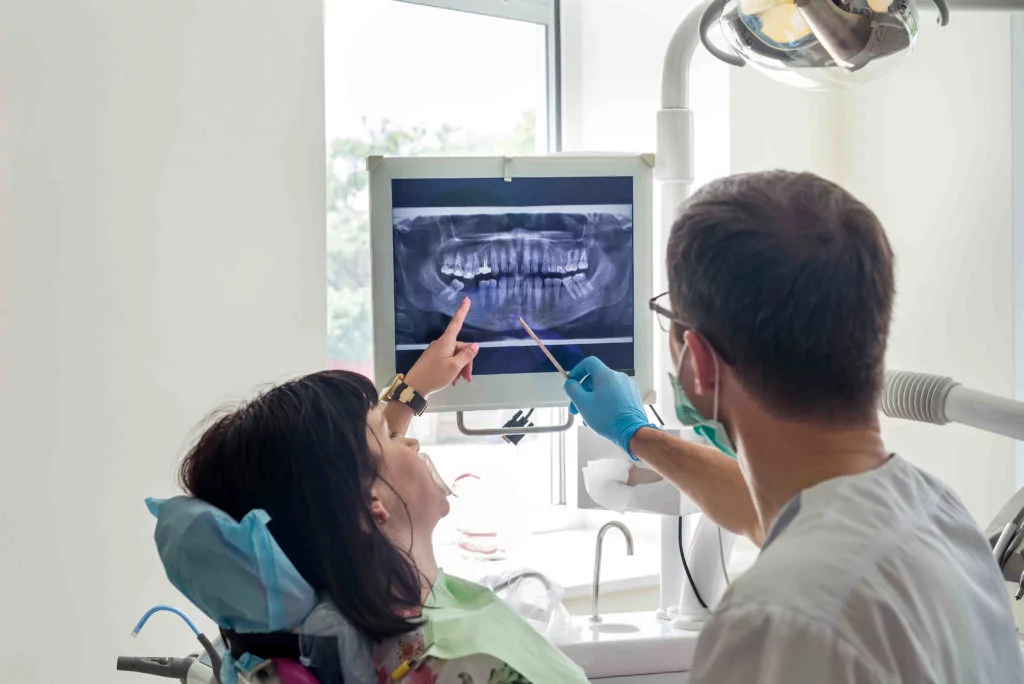When it comes to maintaining good oral health, many people know that regular brushing and flossing are essential. However, one vital tool that often goes unnoticed is dental X-rays. At Collins Road Family Dental, located in Bristol, CT, understanding the importance of dental x-rays can help you stay proactive about your dental care. These tiny, painless images play a significant role in helping your dentist detect problems early, ensuring you enjoy a healthy, confident smile for years to come.
What Are Dental X-Rays?
Dental x-rays are specialized images that provide a glimpse beneath the surface of your gums and teeth. They capture detailed pictures of your oral structures, including bone, roots, and the position of your teeth. These images are vital because they reveal issues that are not visible during a regular dental exam. X-rays are generally quick, painless, and involve minimal radiation exposure, making them a safe and valuable tool in dental care.
Why Are Dental X-Rays So Important?
Early Detection of Dental Problems
One of the main reasons dental X-rays are essential is their ability to detect issues at an early stage. Problems like cavities, infections, and gum disease often develop without apparent symptoms. By catching these issues early, your dentist can provide effective treatment before they worsen, saving you discomfort and costly procedures down the line. For example, small cavities may be hidden between teeth or under existing fillings, making X-rays a key diagnostic tool in preventing further decay.
Detecting Tooth and Root Problems
Dental x-rays provide a clear view of the roots of your teeth, which are not visible during a typical exam. This is especially important for identifying issues like root infections, abscesses, or damaged roots caused by injury or decay. If left untreated, these conditions can lead to more severe infections or even tooth loss. Early identification through X-rays allows for timely intervention, often saving the affected tooth.
Monitoring Growth and Development
For children and teenagers, dental X-rays are used to monitor the development of permanent teeth and jawbones. This can help detect issues such as impacted teeth, malignment, or abnormalities that might require orthodontic intervention. Early detection can make treatments like braces or other orthodontic procedures more effective and less invasive.
Planning for Dental Procedures
Whether you’re considering a crown, dental implant, or orthodontic treatment, dental x-rays help your dentist plan the right approach. They reveal the precise location of nerves, blood vessels, and other structures, minimizing risks and ensuring the most accurate treatment. For example, before placing a dental implant, x-rays help determine the quality and quantity of bone available, which is crucial for successful implant placement and longevity.
Detecting Bone Loss and Systemic Health Issues
X-rays can also reveal signs of bone loss due to periodontal (gum) disease, which is linked to other health conditions such as diabetes and heart disease. Detecting bone loss early allows for appropriate treatment, helping to protect your overall health. This shows how oral health is connected to your general well-being.
Saving Time and Money
By catching problems early with dental X-rays, you can often avoid more extensive and expensive treatments later. For instance, early cavity detection means quick, simple fillings instead of root canals or extractions. Moreover, X-rays can help your dentist identify potential problems before they cause pain or discomfort, saving you time and worry.
Are Dental X-Rays Safe?
Many people have concerns about the radiation exposure involved with X-rays. The good news is that dental X-rays use very low levels of radiation, and modern equipment is designed to minimize exposure further. At Collins Road Family Dental, we prioritize patient safety and strict guidelines. For most patients, the benefits of early diagnosis far outweigh the minimal risks associated with dental X-rays.
Who Needs Dental X-Rays?
Most patients benefit from routine dental x-rays, usually once a year or as recommended based on individual risk factors. Those with a history of dental problems, ongoing decay, or extensive restorations may require more frequent imaging. Children, teenagers, and older adults all benefit from tailored X-ray schedules to monitor their dental health.
What to Expect During a Dental X-Ray
Getting a dental X-ray is straightforward. You’ll be asked to sit in a comfortable chair, and a small sensor will be positioned in your mouth or near your face. The process only lasts a few seconds, and you need to remain still while the image is captured. The procedure is painless and safe with your comfort and health in mind.
Dental x-rays are an indispensable aspect of comprehensive dental care. They provide crucial insights that go beyond what the naked eye can see, enabling early intervention and effective treatment of various dental issues. If you’re looking for great dental care, trust Collins Road Family Dental to provide thorough examinations, including dental x-rays, to keep your smile healthy and bright.
Remember, regular X-rays combined with good oral hygiene and routine dental visits are your best defense against dental problems. If you have any questions about dental X-rays or want to schedule an appointment, our friendly team is here to help. Protect your smile today and enjoy confident, healthy teeth for tomorrow!

